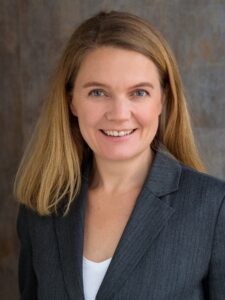Topic network Safety and Security
When we talk about a system’s safety and security, we mean that the system does not cause any harm itself and cannot be harmed by external factors. Depending on our perspective on the system, this either raises the question of how to describe and quantify safety and security (as a property) or poses the challenge of finding the right means and methods to prevent damage from occurring.
More
The first of these tasks is primarily descriptive in nature and is the subject of research in a range of disciplines including economics, psychology, sociology, medicine, the humanities and mathematics. It also involves the analytical aspect of investigating and describing the causes of damage.
The second task, which is constitutive in nature, focuses on the methodological development, design and shaping of the means, methods and instruments to prevent damage. The human factors involve the fields of education and some aspects of economics, whereas the nature and technology factors involve fields such as biology, chemistry, geology and especially engineering, including IT.
The implications for the scientific study of this multifaceted subject are as follows:
- Safety and security is an interdisciplinary field.
- Safety and security is something that should be designed.
Safety and security is the product of emergent interactions between technology, people and organisations, i.e. complex socio-technical systems. In a broad sense, it is safety and security combined with trustworthiness and reliability that makes these systems dependable, ensuring the stability of our modern society.
acatech’s Safety and Security topic network brings together experts from a wide range of disciplines. It adopts an interdisciplinary approach to the following aspects of dependability which, because of their nature as cross-cutting themes, are discussed both individually and in relation to complex socio-technical systems:
Terminology and communication
- The use of standard terminology and language across different disciplines
- Communication about safety and security
Risk measurement and modelling
- Measurement and analysis of safety and security
- Systems theory of safety and security
Dependability of complex socio-technical systems
- Methods for establishing safety and security
- Safety and security of the energy supply
- Safety and security in urban areas
Training
Members
- Prof. Dr. Michael Backes
Universität des Saarlandes - Prof. Dr.-Ing. Bernd Bertsche
Universität Stuttgart - Prof. Dr.-Ing. habil. Jürgen Beyerer
Fraunhofer-Institut für Optronik, Systemtechnik und Bildauswertung (IOSB) - Prof. Dr. Werner Damm
Carl von Ossietzky Universität Oldenburg - Prof. Dr. habil. Claudia Eckert
Fraunhofer-Institut für Angewandte und Integrierte Sicherheit AISEC - Prof. Dr. Carl Friedrich Gethmann
Universität Siegen - Prof. Dr.-Ing. Bernd Hillemeier
Ingenieure für das Bauwesen - Prof. Dr.-Ing. Dr. rer. pol. habil. Michael Lauster
Fraunhofer-Institut für Naturwiss.-Techn. Trendanalysen - Prof. Dr.-Ing. Peter Liggesmeyer
Fraunhofer-Institut für Experimentelles Software Engineering - Prof. Dr. sc. nat. Dr. rer. nat. Christoph Meinel
Hasso-Plattner-Institut für Digital Engineering gGmbH - Prof. Dr. techn. Günther Meschke
Ruhr-Universität Bochum - Prof. Dr. Jörn Müller-Quade
Karlsruher Institut für Technologie - Prof. Dr. Stefan Pickl
Universität der Bundeswehr München - Prof. Dr.-Ing. Ahmad-Reza Sadeghi
Technische Universität Darmstadt - Prof. Dr. rer. nat. Wilhelm Schäfer
- Prof. Dr. LL.M. ((Georgetown Univ.) Indra Spiecker gen. Döhmann
Universität zu Köln - Prof. Dr. jur. Klaus Vieweg
Friedrich-Alexander-Universität Erlangen-Nürnberg - Prof. Dr. Michael Waidner
Technische Universität Darmstadt - Prof. Dr. Johannes Weyer
Technische Universität Dortmund - Prof. Dr.-Ing. Thomas Wiegand
Technische Universität Berlin - Univ.-Prof. Dr.-Ing. habil. Petra Winzer
Bergische Universität Wuppertal - Prof. Dr.-Ing. Jan Wörner
acatech - Deutsche Akademie der Technikwissenschaften


